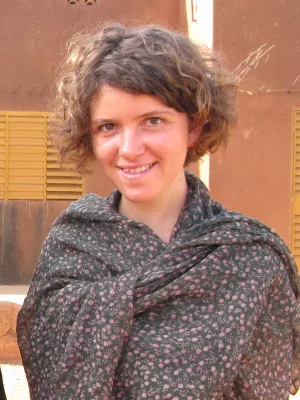
Muriel Côte
Associated Senior Lecturer

Artisanal and small-scale mining through a “labour regime” lens: Consolidating a research agenda on labour exploitation
Author
Summary, in English
This article examines the way the notion of labour regime in artisanal and small-scale mining (ASM) research can contribute to new ways of conceptualising this sector's challenges. It starts by reviewing how the phenomenal expansion of ASM over the last decades has been problematised, and highlights the need to better understand what drives artisanal miners to operate under extremely precarious work conditions, and the role they play in shaping the conditions of the sector they evolve in. ASM labour has generally been approached in research from two main lines of debates, namely livelihoods and agrarian change, and as embedded in global commodity frontiers and networks. The former perspective played an important role in highlighting the diversity of forms of production, and the heterogeneity of labour comprising ASM. This body of work showed that these emerge from strategies adopted mainly by smallholders facing subsistence challenges who diversify their source of income by either branching out into mining or combining it with agricultural activities. The second line of enquiry approaches ASM as emerging from the complex interactions of actors and factors across scales in global commodity frontiers and competing territorialisation projects. Both perspectives highlight the importance of better conceptualising value extraction and ASM labour exploitation dynamics, and the article draws on recent work on “labour regimes” to suggest ways to move in this direction. At this juncture, we emphasise three areas of work that we suggest are worth pushing forth, namely the role of social reproduction dynamics underlying ASM work, the intersecting production of social difference and ASM labour control across supply chains, and the role of ASM resistance, collective mobilisation and agency. Through these, we hope to advance future research on exploitation dynamics in ASM labour regimes, in ways that may also have policy relevance, as labour has rarely been the latter's focus.
Department/s
- Department of Human Geography
Publishing year
2024
Language
English
Publication/Series
Journal of Rural Studies
Volume
105
Document type
Journal article
Publisher
Elsevier
Topic
- Human Geography
Status
Published
ISBN/ISSN/Other
- ISSN: 0743-0167

